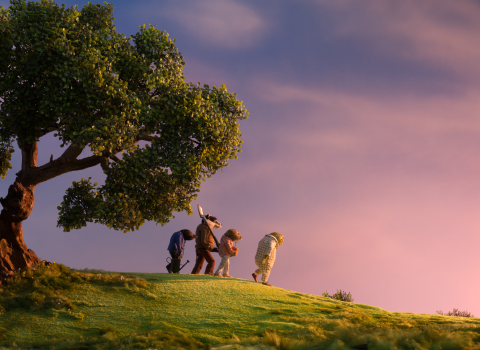A new report from the Intergovernmental Science-Policy Platform of Biodiversity and Ecosystem Services (IPBES) released on Monday 6 May 2019 presents a devastating assessment of the state of animals and plants across the world.
One million species from across the world are threatened with extinction.
The 2019 Global Assessment Report on Biodiversity and Ecosystem Services has been prepared by 150 leading international experts from 50 countries, with contributions from further 250 experts. It reveals that human actions are causing a shocking decline in nature, at a speed never seen before during human history.
The decline in nature is driven by actions including intensive farming, logging, overexploitation of plants and animals, pollution and climate change, and is as much of a threat to people as climate breakdown.
Nature is essential to our existence. Natural ecosystems clean the air that we breathe, provide the food we eat and the water we drink, absorb carbon dioxide from the atmosphere, and regulate the climate. What’s more, 70% of cancer drugs are natural, or synthetic products inspired by nature. The devastating loss of plants and animals will affect every one of us across the world.
Despite the overwhelming scale of the decline of nature across the world, it is not too late to act.
The report’s purpose is to inform better policies and actions in the coming decade by providing the best available evidence for all decision-makers for nature and people.
Chair of the IPBES Sir Robert Watson says, "The loss of species, ecosystems and genetic diversity is already a global and generational threat to human well-being. Protecting the invaluable contributions of nature to people will be the defining challenge of decades to come. Policies, efforts and actions - at every level - will only succeed, however, when based on the best knowledge and evidence. This is what the IPBES Global Assessment provides."
To help nature’s recovery in Britain, The Wildlife Trusts are calling on the government to take action now and create Nature Recovery Networks. These will provide space for nature to recover, join up important places for wildlife, and improve human contact with wildlife and wild places.
By carefully managing our nature reserves, The Wildlife Trusts have preserved valuable gene pools of rare plants and animals, which is giving these species a better chance of escaping the threat of extinction. Nature Recovery Networks will put space for nature at the heart of farming and planning systems, allowing wildlife to spread out from nature reserves and into the wider countryside.
Through our Wilder Future campaign, we are asking the public to write to their MPs and ask them to support:
- Nature Recovery Networks, which provide enough space for wildlife to recover, and improves human contact with wildlife and wild places
- an independent environmental watchdog that can take legal action against councils and the government if they break the law
- strong laws after the UK leaves the EU, with legally binding targets to improve the environment and biodiversity.
It is not too late to halt the decline of nature but we must act now. The stakes have never been so high and business as usual is no longer an option.

